Leap day birthdays: 'How old are you really?'
- Published
Ivy Ingram loves being a "leapling"
People born on 29 February hold a certain fascination for those of us - that is, nearly all of us - whose birthdays come round once a year.
As they prepare to celebrate their actual birthday for the first time since 2016, five so-called "leaplings" explain some of the pros and cons of having emerged into the world on the calendar's only occasional date.
'We get the same questions every year'
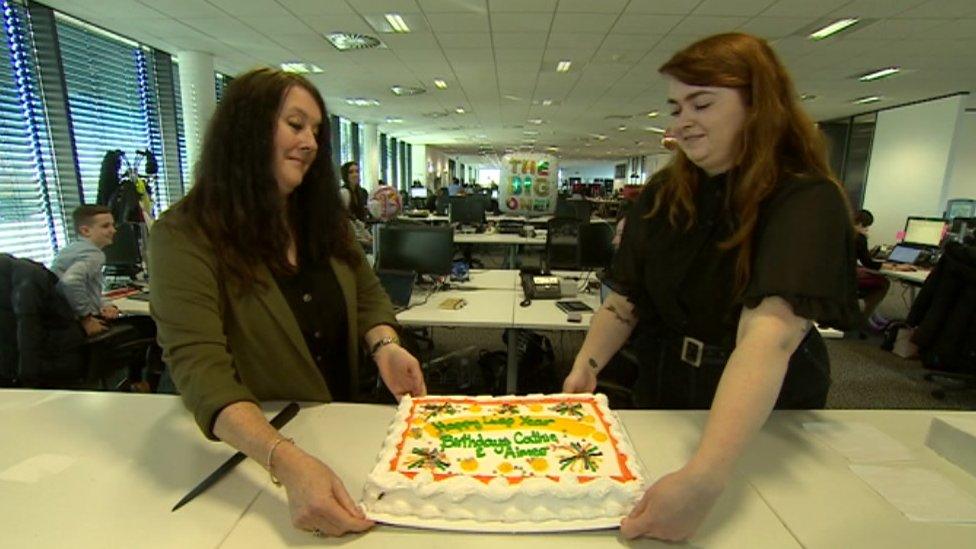
Mother-and-daughter leaplings are extremely rare
Having a birthday once every four years does have its downsides, according to mother-and-daughter leaplings Cathie and Aimee Chapman.
"We get asked the same questions every single year," says Aimee, 23, from Coventry.
"How old are you really? What day do you celebrate? Is it annoying sharing a birthday with your mum?
"Also when you're filling in your date of birth online, you have to do it backwards. You have to find the year on the dropdown menu before the day, otherwise 29 February won't appear," she says.
"But other than that, it's not really annoying. I really enjoy sharing it with my mum, that's the most special part of it for me."
'I'm just like the Queen'
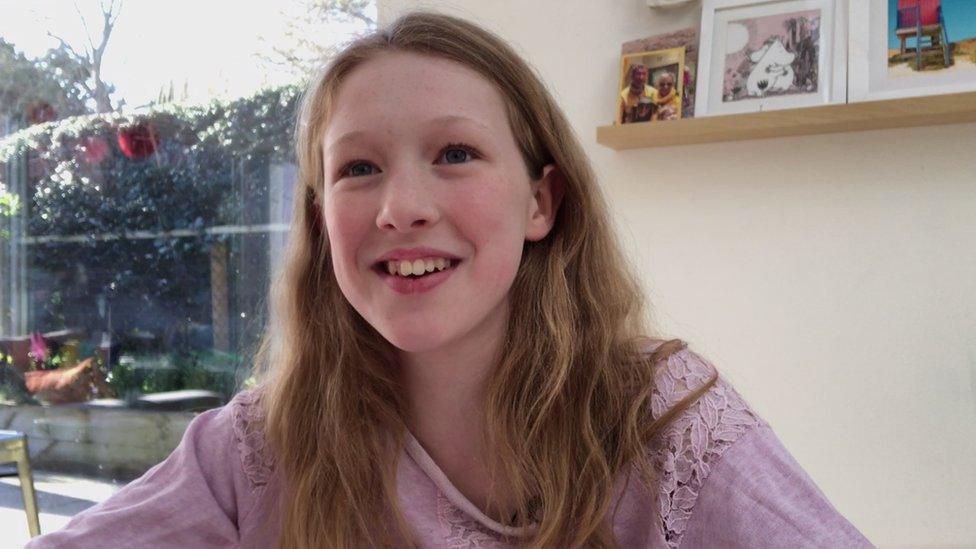
Lily Harris says she loves being a leapling
A 29 February birthday isn't annoying for 11-year-old Lily Harris from Shrewsbury, or eight-year-old Gracie Antcliff from Royston, Hertfordshire.
"I really like it because it makes me feel special and different," says Lily.
"I'm just like the Queen having two birthdays, external," says Gracie, who celebrates most years on 28 February and 1 March.
In UK law, leaplings become a year older not on 28 February but 1 March. This could be something of a disappointment to a soon-to-be-17-year-old leapling planning a first driving lesson on 28 February - or to one turning 18 who was planning a rite-of-passage night on the tiles.
However, Aimee says she didn't have any issues getting served on 28 February. "If they hadn't let me in I would only have had to wait until midnight," she says.
'We tend to celebrate on the 28th'

Gracie Antcliff changes her mind about when to celebrate her birthday
When Ivy was born in 1996, mum Elizabeth Ingram had every intention of celebrating future birthdays on both 28 February and 1 March.
"As the years have gone on we've decided that two days and two lots of presents is a bit much," says the mum of two from Shropshire.
"We tend to celebrate on the 28th because Ivy's a February baby so it would feel a bit strange doing in it March," she says.
For Lily, a 28 February celebration is preferable, while Gracie says she often changes her mind over dates, sometimes at the last minute.
And Cathie and Aimee have so far managed to avoid a battle over their birthday.
"We used to try and do it separately or have one day with friends and the other with family," says Aimee.
"Now I think we like to be like the Queen and have two birthdays. We milk it really," she says.
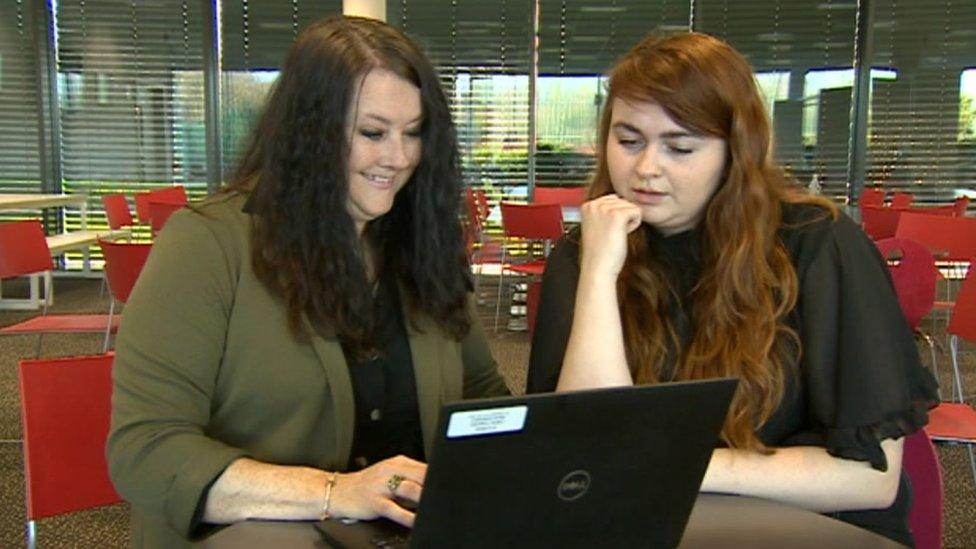
Cathie and Aimee Chapman said entering their date of birth online required a bit more attention
Understandably, Cathie remembers 29 February 1996 rather well. On her 28th birthday, the heavily pregnant mum-to-be came downstairs after her husband Paul had gone to work.
"I was expecting to see a birthday card but there was nothing there," she says.
"I was fuming. I only get a birthday every four years so I was grumpy, overdue and stewing all day.
"When he came through the door that night with no card or flowers, I was so cross. I said, 'Did you forget something, Paul? It's my leap year birthday.'
"As I said it, my waters broke, so we jumped in the car and Aimee was born at 23:07. Paul can't forget our birthday now he's got two of us."
'We go big on a leap year'

Ivy said she wanted to play, eat and have birthday cake at her party
Elizabeth says Ivy is having a birthday party for the first time this year.
When asked about her plans, Ivy says with a soon-to-be-four-year-old's simple conviction: "I play, I eat and then I have my birthday cake."
Cathie says that she and Aimee "always try to go bigger on a leap year".
"One year we were at Alton Towers and the staff had everyone singing us happy birthday," Cathie says.
"Another time we were on a plane and the pilot gave us a shout out."
Gracie says she likes to make the most of 29 February.
"My favourite day is my actual birthday," she says. "Who cares about the 28th of February and the 1st of March?"
- Published30 June 2015
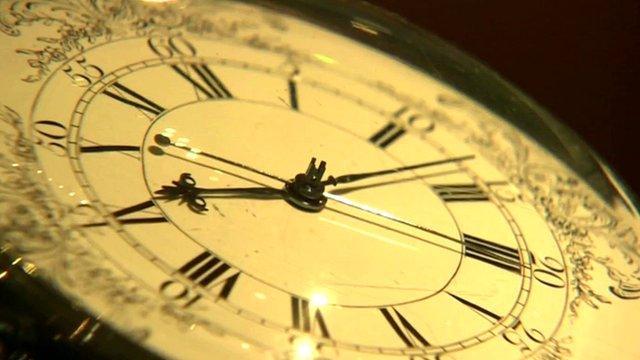
- Published29 February 2012

- Published2 February 2016
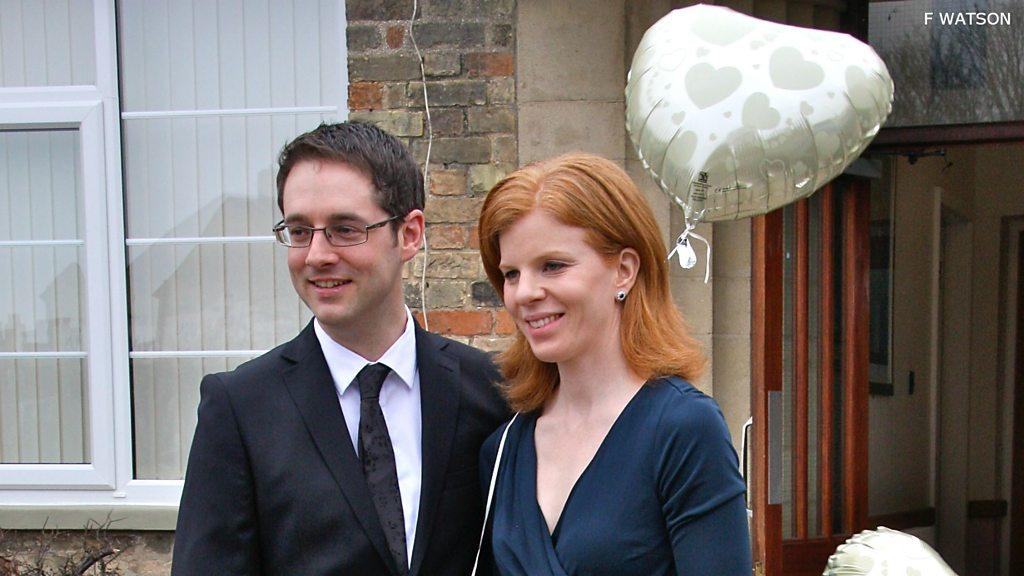
- Published26 February 2016
